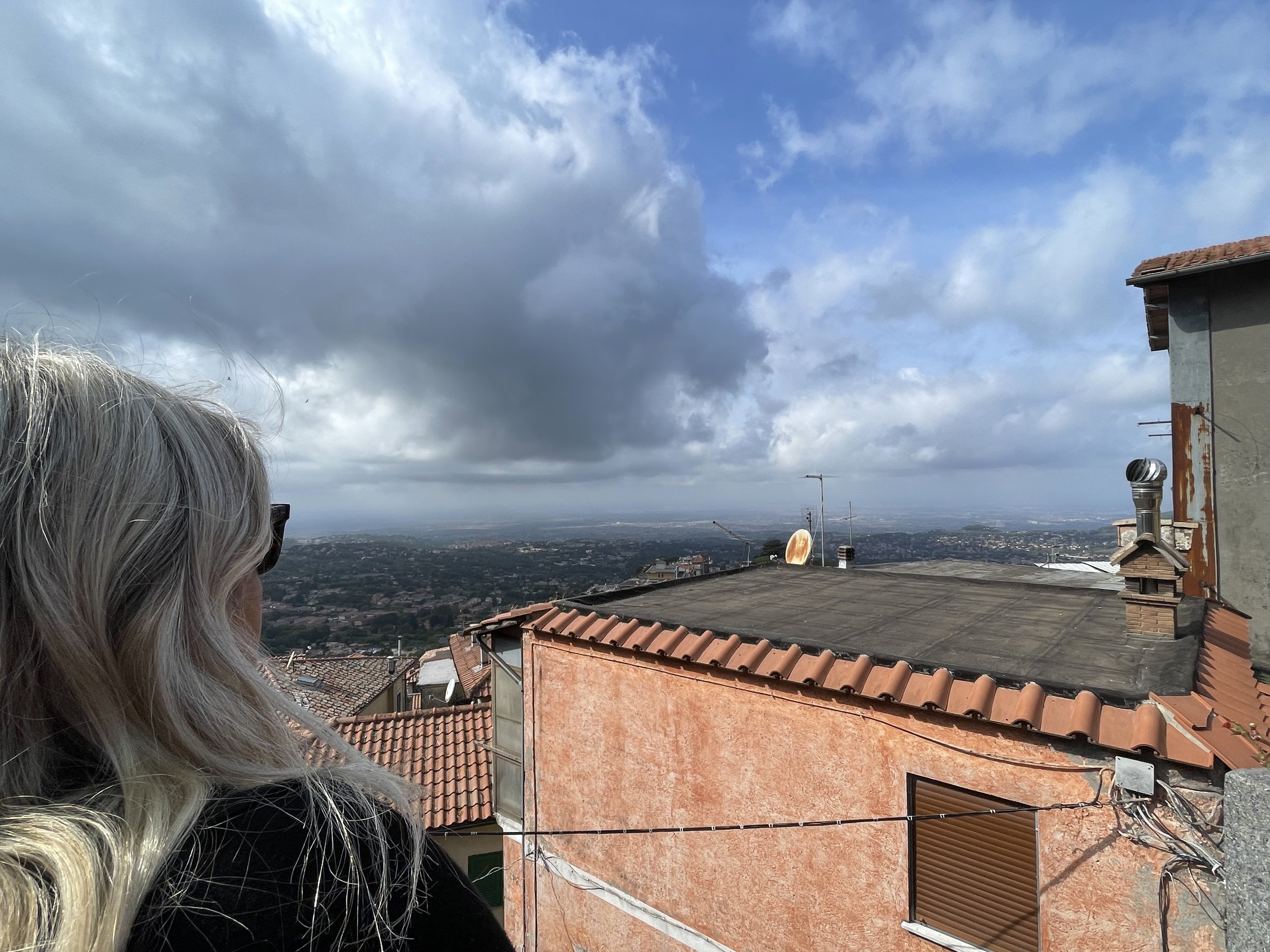Why the media’s utopianism of Italy is something I treasure
My Italian uncle arriving in the countryside near Viterbo, Italy. Photo credit- Rebecca Turner
“L’italia è un paese bellissimo. But unfortunately, this is a naïve interpretation of what it can actually be like to live in Italy” says my mother.
I’ve grown up fantasising about an Italian childhood like the one my mum used to live. A magnificent photo of Catino, my grandad’s village, which my mum visited every other summer, adorns the wall near the stairs in my home, with various other photos of us visiting Rome and family members nearby dotted all around the house. What’s most memorable however, are the stories that my mum told me as a child and still recounts today. Teenagers meeting each other in the evenings, wonderful nocciola ice-creams with a sunset backdrop and Italian holiday romances are all amongst the plethora of things that my mum mentions. She meticulously recreates the atmosphere of the piazzas and their sense of community; their mention echoing like some sort of nostalgic melody in my childhood home, ever-encapsulating of the Italian ‘dolce vita’.
Sentimental joy gushes out of her when retelling memories that range from village children playing nascondino together in the huge piazza, hiding behind brightly coloured Fiat cars, to groups of friends watching the sacred pizza van turn into the village road, then tracing its journey to the village bar in the piazza and being rewarded with small pieces of pizza rossa and pizza bianca. Particularly moving are her memories of her nonna and how the nonni and bambini of the town would congregate to drink gassosa and talk about life.
After spending childhood summers in Italy, my mum moved there at 22, staying there for 10 years before moving back to England. But as I started to get older, I began to wonder; if Italy was so wonderful why not continue living there? Why had mum moved back to England? Why was there never talk of us moving there?
As hard as it may be to face, the reality of Italy is so different to the one that we see in the media and the one that we experience on holiday. Many of the small villages are engulfed in social issues; the exact reason why my grandad left Italy in the first place in search for a ‘better’ life in 1952. A lack of jobs, political turmoil, and an often restrictive education system birth a vicious cycle of an elitist society and tarnish Italy from flourishing into its full potential.
Looking out to Rome from Rocca di Papa, Lazio. Photo credit- Rebecca Turner.
This Italy is not often shown in the media – we see an idyllic presentation, in photography, in films, in social media. A mass obsession with Northern Italy manifested itself circa 2017, stemming from Timothée Chalamet’s appearance in Call me by Your Name, set in the surrounding areas of Lake Garda. Picturesque landscapes, family meals, summer love and the dolce far niente (the sweetness of doing nothing) were all key elements of this striking picture.
An article written by Max Norman for The New Yorker explores a rarity in the depiction of Italy; a project exploring the reality of Italy through authentic and personal perspectives. Named ‘Pictures from Italian Profiles’, this project was set up on Facebook and later published as a book, from creator Stefano Frosini. Although the harsh realities previously touched upon are shown in this series, the Italian attributes of the joy of cooking, and the beauty of conversation, are what stand out from its saturated, nostalgic photos. Looking at these photos reminds me of our Italian photo albums. How touching it is to see such elements which have largely shaped me and my mother into the people we are today presented in material form.
Although, like all nations, Italy evidently has its issues, mine and my mother’s patriotism will continue to prevail. Whist I can see how much it annoys my father when I choose Italy over England in a sporting match (the Euros is still a touchy subject…), there’s no doubt that Italy, its wonderful people and breath-taking scenery will always hold a very special and very permanent place in my heart and it is a privilege to see its allure represented in the media, no matter how much it may sometimes be idealised. Sometimes life is meant to be romanticised, rather than automatically filtered through the critical gaze.

